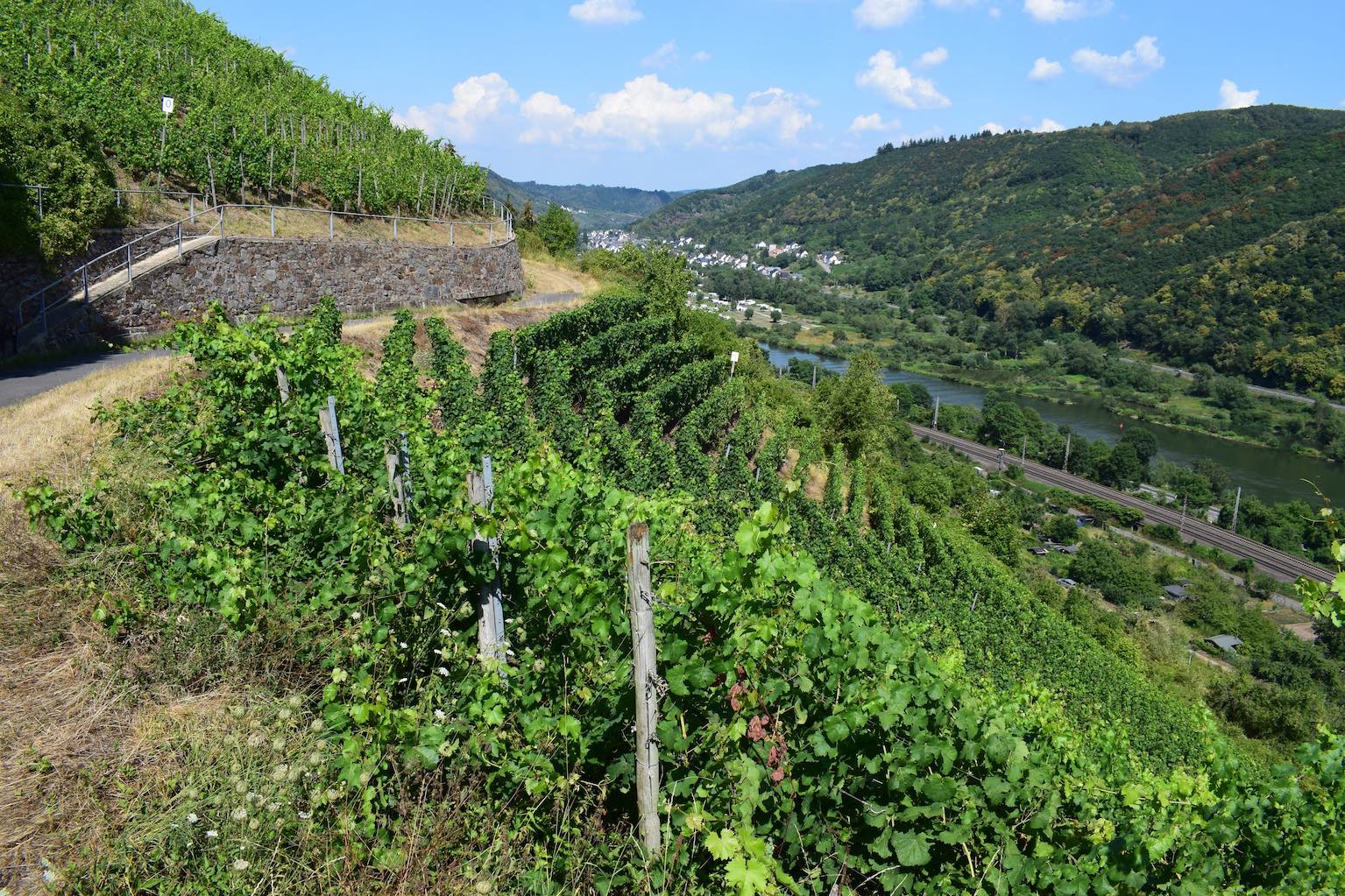« Le 19 mai 2014, l’association « Weltkulturerbe Moseltal e.V. » a été créée dans le but d’inscrire la Vallée de la Moselle au Patrimoine mondial de l’Unesco. Pour qu’une telle candidature soit retenue, le projet doit, entre autres, présenter un plan de conversation convainquant. Ainsi il a été proposé que certains vignobles en terrasses devront être cultivés exclusivement selon la procédure ancestrale dite « Einzelpfahlerziehung ». En effet, cette méthode, lors de laquelle les vignes sont dressées sur des piquets en bois individuels, est très intensive en main d’œuvre, mais peu rentable.
Dans un article du 16 juin 2021 intitulé « Dicke Luft in der Kulturlansdschaft Mosel », le quotidien « Trierischer Volksfreund » rapporte que plusieurs viticulteurs de la Moselle allemande ne seraient pas d’accord avec l’obligation de cultiver leurs vignobles exclusivement selon cette méthode ancestrale. D’après le même article, le temps presserait car le délai pour introduire la candidature viendrait à échéance fin du mois.
Dans ce contexte, j’aimerais poser les questions suivantes à Madame la Ministre de la Culture et à Monsieur le Ministre de l’Agriculture, de la Viticulture et du Développement rural :
- Madame la Ministre peut-elle m’informer de l’avancée de la candidature de la Vallée de la Moselle au Patrimoine mondial de l’Unesco ?
- Est-ce que la partie luxembourgeoise de la Moselle fera intégralement partie du patrimoine ? Dans la négative, quels lieux culturels ou historiques et quels vignobles ont été désignés pour faire partie du patrimoine ?
- Dans quelle mesure le ministère de la Culture est-il impliqué dans la procédure de candidature ?
- Concernant l’obligation de cultiver les vignobles en terrasses exclusivement d’après la méthode appelée « Einzelpfahlerziehung », est-ce que des vignobles luxembourgeois seront concernés par cette contrainte ? Dans l’affirmative, des pourparlers ont-ils déjà eu lieu avec les propriétaires de ces vignobles ? »






